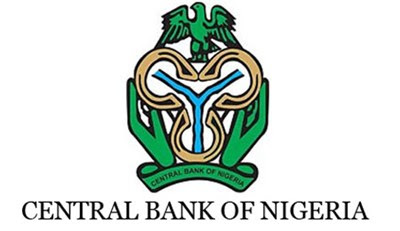There are fears that the new forex policy may cause a major setback in the medical sector.
The Central Bank of Nigeria (CBN), last week, directed commercial banks to pay for their dollar purchases at the official forex window 48 hours ahead of the bid date.
Under the policy, banks and other forex dealers are required to deposit the naira equivalent of the total forex bids to the apex bank 48 hours in advance. The lenders responded by transmitting same message to their customers, who must now fund their accounts 48 hours before the forex bid date. Besides, dollar deposits are being rejected.
The policy, which made no exceptions for medical service providers, is adversely affecting importers of radiopharmaceuticals used in treatment of cancer patients and others with serious ailments, The Nation learnt yesterday.
For the Centre for Nuclear Medicine –an International Atomic Energy Agency (IAEA) Project—at the University College Hospital (UCH), Ibadan, which banks with Guaranty Trust Bank Plc, the policy shift means more pains for its cancer patients.
As a non-governmental organisation, the Centre does not have huge cash at its disposal and remitting funds 48 hours before bid date will strain its already drained resources, a source said. This will lead to reduced number of patients who will have access to the cancer drugs, hence, aggravating an already difficult situation.
The Nation gathered that since the CBN began the enforcement of the policy, the importation of drugs for the patients has been put on hold. The drugs for the centre’s patients are shipped to get to Nigeria within three to four days when they should be taken by patients. The centre “operates more or less like a charity”, being a UN agency, but it is lumped together with big businesses by bankers, The Nation learnt.
Besides of such organisations are exempted from the rules, CBN Director of Corporate Communications Ibrahim Mu’azu said the apex bank could not give exemptions because it will not know where to draw the line.
In his view the centre can overcome the funding challenge by planning ahead.
But, an expert, who pleaded not to be named because he is not permitted to talk to the media, believes that both the CBN and the banks do not understand the damage the policy can do to the health sector, including the patients undergoing treatment at the centre. He urged the CBN to grant waiver to providers of medical services, because of the sensitivity of their cases.
“Both the CBN and the banks do not understand the harm they are doing to the health of cancer patients who need these drugs to stay alive. Why can’t they give a waiver to providers of medical services. For us, the drugs used in UCH are not produced in Nigeria or even West Africa. They are imported from France and Hungary,” the source said.
The bank sends the Euro to the company that produces the cancer drugs in France and Hungary.
But for both the CBN and banks, every transaction is considered first, as a business. All must follow the policy.
Statistics show that Nigeria records 100,000 new cases of cancer every year, and at the moment, there are about two million recorded cases. Experts say the incidence is increasing at an alarming rate in developing countries, such as Nigeria, due to the poor state of health facilities, poor funding of cancer care, late diagnosis and detection of the deadly disease.
Speaking on the new forex policy during the Bankers’ Committee meeting held in Lagos last weekend, GTBank CEO, Segun Agbaje said: “I think the policy will help the CBN a lot to determine what the real demand for forex is or what spurious demand is. It is going to ensure that what we operate is effective demand backed by cash. So, that way, it is easy for the Central Bank to actually determine what the demand is and ensure it is a proper demand.”
This is not the first time the centre for Nuclear Medicine has been caught up in the complexity of a new policy.
The late President Umaru Yar’Adua approved a special clearance for the centre’s goods at the airport to avoid unnecessary delay that could damage the radioactive drugs used for cancer and thyroid patients.
“He was a chemist and he understood it all. He quickly granted the request,” said the source.
The centre wrote to President Muhammadu Buhari to save it the problems of clearing its radioactive materials at the Lagos Airport. This was after a sudden increase in clearing tariff by the Nigerian Aviation Handling Company (NAHCO) and Customs, who delayed the clearance and issue of gate pass for the centre’s clearing agents. The impasse has been resolved – apparently after President Buhari’s intervention.





No comments:
Post a Comment